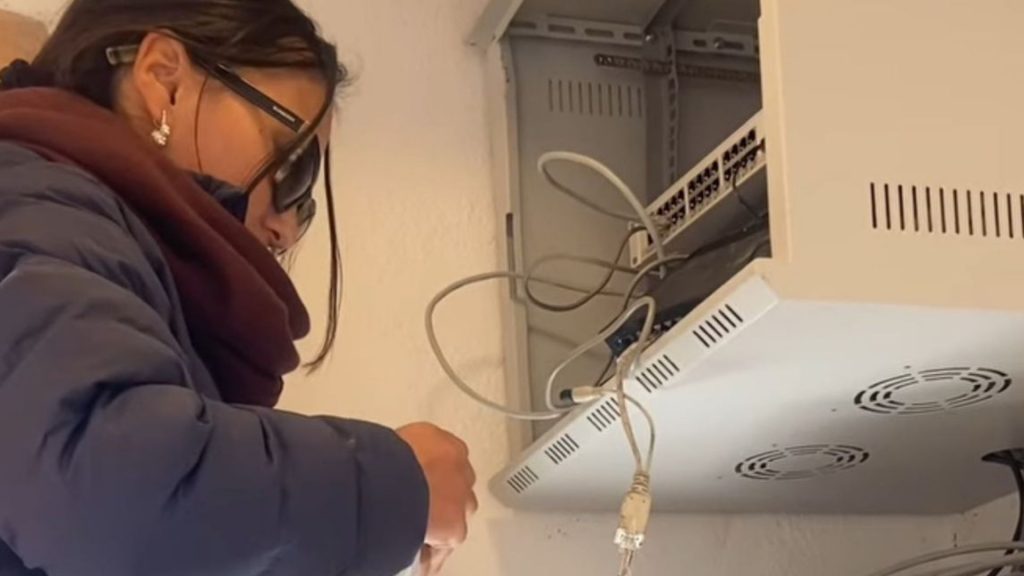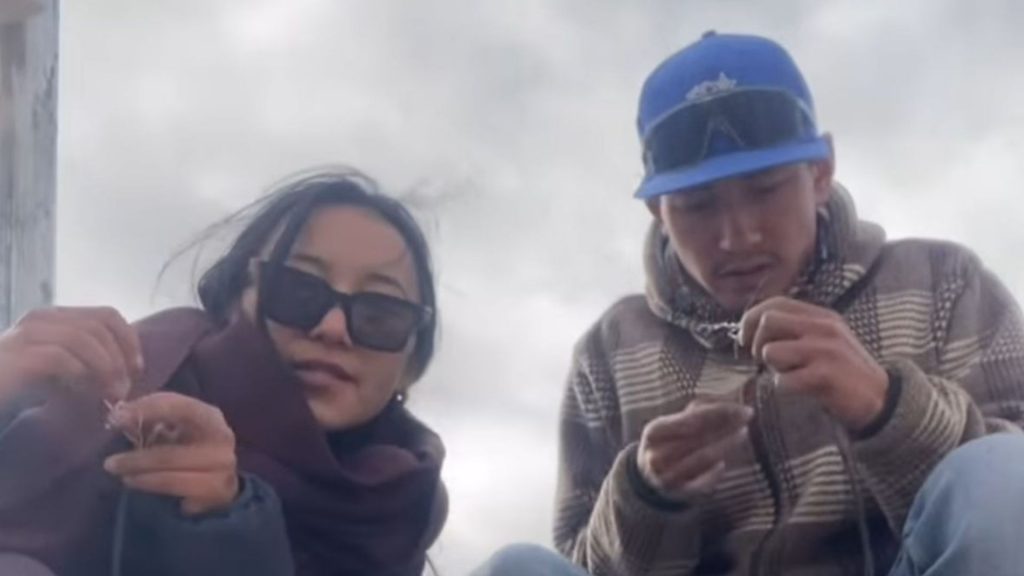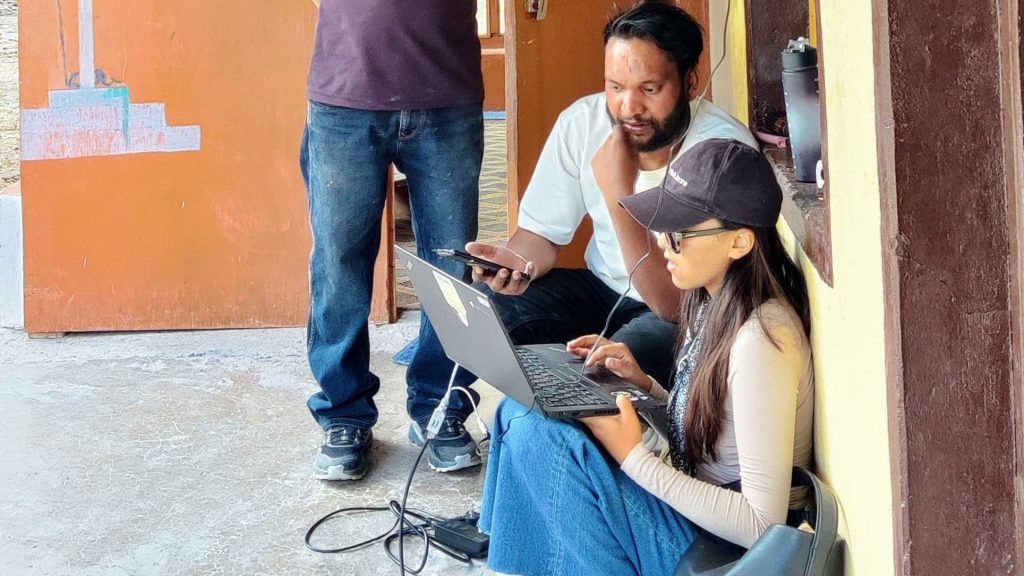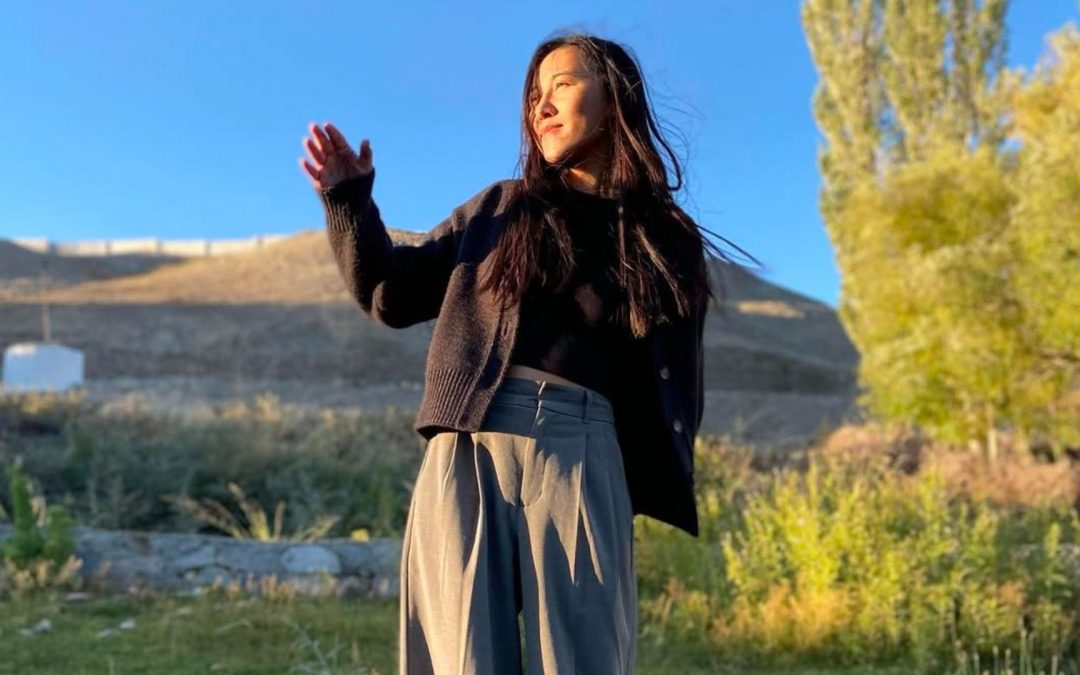“Oh, are you an electrician?” “What is this Wi-Fi business?” “Do you even make money doing this?” “How come you are doing this work as a girl?” These are just some of the common remarks Rabzes hears as she forges a new path in Ladakh’s digital landscape. But rather than letting these comments deter her, she embraces them as markers of the change she is driving.
Rabzes is Ladakh’s first female Internet Service Provider (ISP), leading the charge in bringing connectivity to the region’s most remote villages. Her journey has been anything but conventional, marked by perseverance, learning, and a passion for breaking stereotypes.

A Childhood of Curiosity and Learning
Growing up in Stok, Rabzes spent her childhood playing ‘teacher-teacher’ after school. Later, when she moved to Skalzangling in grade seven, she had better access to coaching centers, particularly for math and science. Though she had a laptop at home, the internet remained an unknown entity. Her first exposure to a laptop came through a tenant, as she had only seen computers in school. Driven by curiosity, she pleaded with her father, who was traveling to Delhi for business, to bring her one.
The Early Days of Internet Discovery
Rabzes first encountered Facebook in ninth grade, accessing it at a cyber café with her friends—a ritual that quickly became a daily routine after school. Phones were a rarity, and she received her first one in tenth grade, though without a SIM card. By the time she reached eleventh and twelfth grade, her focus shifted entirely to academics at her boarding school, where devices were not allowed. Determined to secure a place in a good university, she immersed herself in her studies.
A New Path in Taiwan

After completing high school, Rabzes pursued commerce in Delhi while simultaneously studying Chinese at DU. She had always envisioned herself studying in China or Taiwan. Although obtaining a Chinese visa proved difficult, she successfully secured one for Taiwan. However, delays in receiving graduation documents forced her to postpone her plans. Finally, in December 2019, she arrived in Taiwan, where she pursued an MBA while working part-time at an Indian restaurant and later as a teacher.
Finding Purpose in Connectivity
Upon returning to India, Rabzes continued working remotely in education, but she couldn’t ignore the persistent lack of internet access in her homeland. Her father, already acquainted with Durgesh, a founder of Hybrid Internet, saw an opportunity for collaboration. Inspired by the idea, Rabzes partnered with Hybrid Internet to expand its services in Ladakh, beginning with Stok and Saboo. In the following year, she fully committed herself to the mission.

Despite initial skepticism and gender biases, she immersed herself in the technical aspects of wireless connections. She encountered challenges, particularly in Shey, where inconsistent signal strength made traditional wireless solutions ineffective. Determined to find a solution, she learned fiber-optic connections from her engineer within two days, successfully bringing stable connectivity to the area.
Transforming Ladakh’s Digital Landscape
One of her most impactful projects was in Hanley, a village entirely cut off from the internet. The gratitude of the villagers upon receiving connectivity reaffirmed her purpose. Additionally, her expertise caught the attention of Oberoi Grand Hotel, which onboarded her for their Leh location—a major milestone in her career.
Breaking Barriers and Inspiring Change
Rabzes’ journey is a testament to the power of determination and breaking stereotypes. She believes that no job is too big or small, and that gender should never define one’s career choices. Her advice to young people is simple: if you are capable and determined, no barrier—technical or societal—can hold you back.

Through her work, she is not only bridging Ladakh’s digital divide but also inspiring a new generation of women to pursue careers in technology. Rabzes is living proof that with vision, hard work, and resilience, unconventional dreams can become reality.

